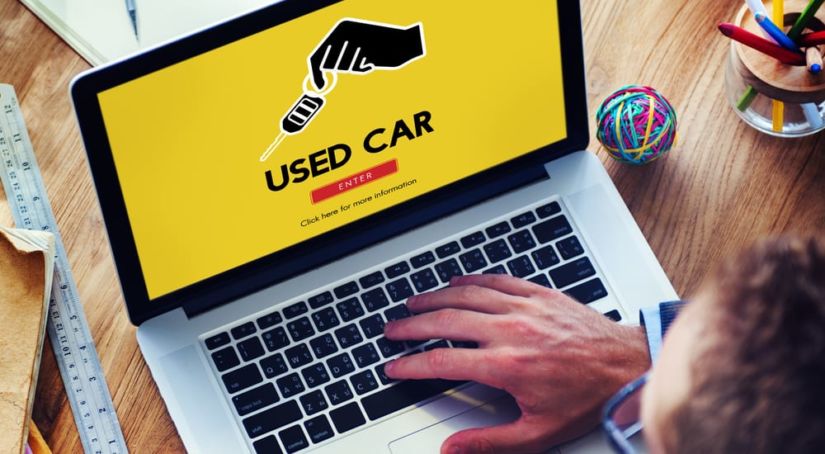Buying a used car is a great way to get a vehicle that’s new for you at a much lower price than buying an actual new vehicle. There are lots of different places to find used cars for sale, including dealerships, private owners, and online services. But before you go to make a purchase from anyone selling a used car, there are some things you should know and steps you should take to protect yourself.
A lot of these things are pretty simple, and you may already know some of them – if you do, that’s great! But just like anything else in this world, the more you know, the better prepared you are to handle a situation. Whether you are buying a used car or baking a cake, it’s best to cover all your bases and make sure you know what to expect and prepare yourself for the process. Professional bakers get their ingredients in place and go over a recipe before they proceed, and you should make sure you are prepared for any used car dealership.
1. Do Some Research on Models You Like
Figuring out manufacturers and specific models you like is a process all its own and is something you should do well before considering shopping for used cars for sale, so you know what you’re looking for. But once you do have a sense of what you want, do some research specifically into one or two models you really like. Don’t just look at the features available on them, look for specific information about what it is to own one.
Find out what the fair market value is on a used car of the model you like. Look for listings for that used car at different places and compare prices against what you found to be a fair value. Do some research and find reviews or reports from people who have owned that model to see if there are frequent problems you should know about before getting too invested.
2. Check for Recalls
In the midst of doing other research, be sure to look up the year and model you are interested in and see if there have been any recalls. If not, then that’s a good thing. If you do discover recalls for a model you want to buy, find out if it was a particular part or a larger issue. You can use this information when looking at used cars for sale to make sure any issues have been handled.
3. Run a Vehicle History Report
Once you find a listing that you are interested in, whether from a dealership, private seller, or website, request the Vehicle Identification Number (VIN) and use that to run a vehicle history report on the car. Even though some businesses with used cars for sale may already perform these report requests, doing it yourself is still a good idea. Just remember: if you don’t find anything negative, that doesn’t mean that car has never had any issues. There could have been problems that were simply never reported.
4. Ask for a Vehicle’s Title and Service Records
You should also ask the seller about the title and to see the service records for a particular vehicle you are interested in. The service records will let you know two things: how well it was taken care of, and if there were any major issues. Watch out for things like major bodywork that can indicate the vehicle was in an accident, and make sure regular maintenance was performed to keep the vehicle in good working order.
While you are doing this, you can also make sure the seller has the title available. If the seller does not have the title, that may mean there is a lien or loan on the car already. You need to be sure you can actually get the vehicle transferred to you, or if you should be dealing with a lender rather than a private seller.
5. Inspect the Condition of the Car
Visually look at the vehicle as best you can. If you can see it in person, take a good look at the interior and exterior to see what kind of condition it is in. If you are looking at used cars for sale online, then look carefully at every picture you can find of it and zoom in as much as possible. Ask for more pictures if you cannot see important areas to inspect them as well as you can.

6. Take a Test Drive
Before making any purchase, take the vehicle for a test drive. While you do this, take it through conditions you usually drive in – such as turns or hills – to see how it handles. Keep the radio off and listen for any strange sounds from the vehicle and also be aware of strange smells that can indicate a problem with the vehicle’s mechanics.
7. Have a Mechanic Perform an Inspection
Get a third-party mechanic, whenever possible, to perform a Pre-Purchase Inspection (PPI), which usually costs around $100. The mechanic should give it a thorough inspection, including lifting the vehicle up to check its undercarriage. Find your own mechanic rather than going to someone suggested by the seller, especially private sellers. Make sure the results of the inspection are sent straight to you, not to you through the seller.
8. Ask Questions!
There are no foolish or stupid questions when looking at used cars for sale. Ask any questions you have and make notes of answers when important information is revealed. Sellers might only present the best details about a vehicle, but asking questions can elicit more information including things the seller might not volunteer.
Any time a seller is not willing to answer your questions, take that as a red flag. You have a right to know what you are getting into before making a purchase. A legitimate seller with a quality product should want to brag about its features and show them off, not hide details or avoid simple questions.
9. Ask about a Warranty
Dealerships may provide warranties for the used vehicles they sell, especially for certified pre-owned cars, trucks, and SUVs. Used cars from private sellers might still be under warranty from the manufacturer, and in some instances, this warranty can be transferred to a new owner. That’s not always the case, but it never hurts to ask and can end up saving you money in the long run.
10. Be Ready to Walk Away
This is one of the hardest things for a lot of people, but it is absolutely crucial. Never fall in love with a used car before you have bought it – as that just takes away any edge you might have in haggling or negotiating over the price and other details. As soon as you become emotionally invested in making a purchase, you have given all the power to the seller.
Be ready to walk away from any deal before it is made when you start picking up on red flags and other warning signs. If the seller won’t provide important information, dodges questions about the vehicle’s history, or wants you to sign a contract before a test drive, these are all big warning signs. You should go into any used car purchase ready to walk away from it if things go wrong – otherwise, you can easily end up with a big purchase that you regret.



